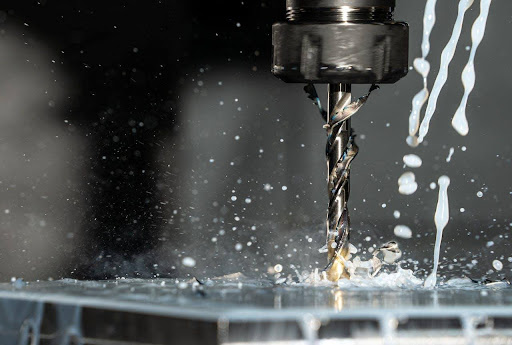Smooth, sleek, and silent; that’s how you want your industrious machines to run. Unseen but undoubtedly crucial, industrial lubricants are the unsung heroes of the manufacturing world.
They’re the protective layers between moving parts, ensuring efficiency and longevity, reducing friction, and dissipating heat. But industrial lubricants do much more than that. Here, we’ll unravel the innovative ways lubricants are driving productivity in our modern factories.
Precision in Motion
When we talk about machines working with high precision, we’re usually referring to those in the aerospace, automotive, or electronics industries.
These heavyweights require a class of industrial lubricants that match their precision, such as Isoflex, Klubersynth, or Staburags. These lubricants boast a fine-tuned level of thickness and offer superior anti-aging and anticorrosion properties.
The use of high-precision industrial lubricants results in reduced play in the moving parts, leading to better control, finer outputs, and significant savings in material costs associated with fewer operational errors.
Chemical Resistance and Hygiene Control
In sectors dealing with strict cleanliness and hygiene standards, such as pharmaceuticals or food processing, lubricants like Paraliq or Centoplex play a key role.
These lubricants are not only designed to withstand stringent wash-down cycles but are also formulated to be non-toxic and non-reactive with chemicals or the product itself.
Using the right lubricant in such industries means machines can maintain operation with minimal downtime for cleaning, ensuring greater productivity by keeping them running with limited intervention.
Energy Efficiency and Sustainability
In the era of mindful manufacturing, lubricants aren’t just about keeping machines in top shape; they also play a pivotal role in conserving energy.
For example, the Microlube range from a reliable industrial lubricant brand is specifically engineered to minimize friction, which translates to less energy consumption and, in turn, benefits the environment.
By choosing these ecologically-friendly lubricants, companies can not only reduce their carbon footprint but also cut down on energy bills.
Automation and Digitalization
With the rise of smart factories, the role of lubricants is also undergoing a digital transformation. Lubricants like Petamo or Polylub are equipped to deal with the high speeds and loads generated by the precision gear systems and servo motors that control automated processes.
Additionally, these lubricants are now integrating with condition-monitoring sensors, alerting maintenance crews when they’re due for a change, thereby optimizing their use and ensuring smooth operations.
Incorporating these high-tech lubricants complements an industry’s pursuit of automation, enhancing not only efficiency but also the predictability of maintenance schedules.
Tailor-Made Solutions for Diverse Industries
Every industry and its machinery have unique requirements, and lubricants are no different. For instance, in the harsh environments of the mining or construction industry, Barrierta lubricants provide an impenetrable barrier against water, dirt, or extreme temperatures.
Selecting the right lubricant that’s designed for specific operating conditions is imperative in such industries. It ensures that equipment functions optimally and extends its operational life, reducing the frequency of replacement and maintenance.
Personnel Safety
Industrial lubricants aren’t just for the well-being of machines; they also safeguard the workers who operate and maintain them. Staburags and similar lubricants are formulated to resist breakdowns and maintain their effectiveness in extreme temperatures or pressures.
This reliability ensures that workers can operate machinery with confidence, knowing that the lubricant won’t degrade and cause any operational hazards due to lack of proper lubrication.





